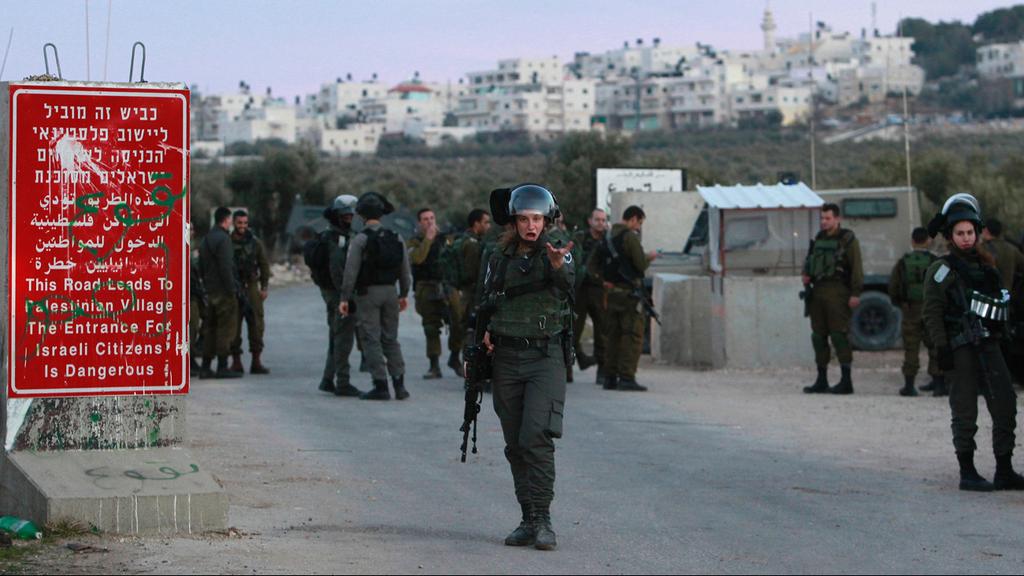Getting your Trinity Audio player ready...
The public discourse in Israel surrounding the proposed application of sovereignty to the Jewish settlements and the Jordan Valley region in the West Bank mainly focuses on the effort's symbolism and how the international community will react to such a move.
In reality, anyone who has visited the West Bank in past years will see that the transition is already in effect.
There is very little difference between Israelis living in the settlement of Ariel or the Gush Etzion settlement bloc and Israelis living inside the Green Line border.
A one-sided annexation of the settlements and the Jordan Valley holds within it a different meaning lacking in the public discourse: Israel would have to face a dilemma that it has attempted to ignore from for years, over the status of the Palestinian people.
Since the end of the 1967 Six-Day War, Israel has been controlling the West Bank under the mantle of a "temporary" occupying regime.
As the occupation continued, the regime became more permanent, with Israel still presenting its actions and settlements in the West Bank as open for debate.
The Oslo Accords signed in 1993 mandated a framework under which Israel "itemized" its control over the Palestinians in the region.
The legal classification of "temporal control" is neither coincidental nor symbolic. It is meant to serve two main purposes.
First, it aims to garner international legitimacy for the control over millions of Palestinians and the settlement of some half a million Israelis in the area.
Just several weeks ago, Attorney General Avichai Mandelblit informed the International Criminal Court in The Hague that Israel is still committed to the Oslo Accords, and therefore, the planned ICC war crime probe should not include the West Bank settlements.
Secondly, the ambiguity allows Israel to refrain from dealing with the status of the Palestinians and the scope of their rights under Israeli and international law.
The so-called "Deal of the Century," with its provision for Israeli sovereignty over the West Bank settlements and the Jordan Valley, will force Israel to tackle these two issues.
Israel will no longer be able to claim its commitment to Oslo, since a one-sided claim over the territory is contradictory to the accords' contents, making the attorney general's statement to the ICC redundant.
Furthermore, Israel will have to deal with the status of the Palestinians within this territory.
The peace deal proposes a future demilitarized Palestinian state - if the Palestinians ever agree that is.
As it stands, the Palestinians have widely rejected the plan and an independent state would be established against their will.
Those familiar with the map of Israeli settlement in the West Bank since 1967 know that there is no chance of establishing a Palestinian state comprising small patches of land separated from one another.
The proposal for such a disjointed Palestinian entity is nothing but a callback to the failure of a similar experiment in South Africa - the Bantustans.
The Bantustans (also known as Bantu homeland, black homeland, black state or simply homeland) were territory set aside for black inhabitants of South Africa and southwest Africa (now Namibia), as part of the policy of apartheid to create a separate nation-state for the black inhabitants.
These Bantustans were first established during the 1950s as a way for the apartheid regime to ensure the "safety and wellbeing" of the white minority and create white-majority regions throughout South Africa.
The international community refused to recognize the Bantustans, which were all dissembled in 1994 with the end of apartheid in South Africa.
Israel's annexation of swathes of the West Bank will lead to the territory left for the Palestinian Authority becoming the new Bantustans – small puppet enclaves whose sole existence is to legitimize Israeli control, absolving Israel of having to deal with the question of Palestinian status and ensuring the protection of Jewish majority in the region.
It is impossible to reconcile this state of affairs with a democratic, if not conservative, position, certainly not for more than two million people.
Politically, Israel could bear the international backlash and go through with annexation, but such a move would kill the proposed Palestinian state.
The theory that the "Jewish" regions of the West Bank could be annexed by Israel, with the civilian and political rights of the Palestinians being ignored, is mere fantasy.
If Israel chooses the path to annexation, the Palestinians living in the West Bank would have to be granted full rights and privileges, there is simply no way around that.
Prof. Amichai Cohen is a senior member at the Israeli Democracy Institute, the Ono Academic College





